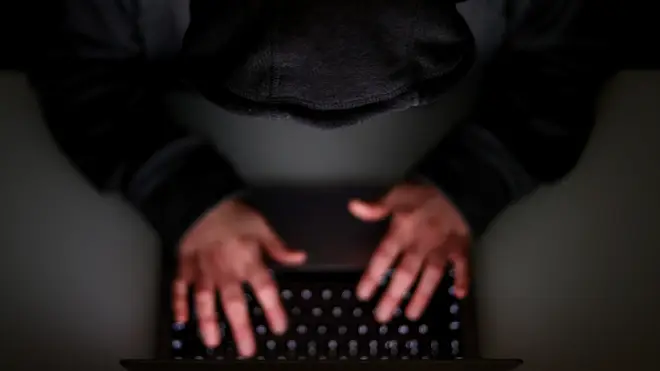
Clive Bull 1am - 4am
31 January 2024, 00:04

Offenders now face up to five years in prison for a range of dangerous online actions.
New offences introduced to criminalise cyberflashing and epilepsy-trolling are among those taking effect on Wednesday, with online abusers now facing prosecution for such acts.
The new offences have come into effect as part of the Online Safety Act, which gained Royal Assent late last year, and means criminals face up to five years in prison for engaging in a range of online abuse, trolling and predatory behaviour.
The offences cover cyberflashing – the sending of unwanted sexual images – as well as sending death threats, the sharing of revenge porn, sending fake news that aims to cause substantial harm, and epilepsy-trolling – where abusers send flashing images electronically with the intention of harming people with epilepsy.
Technology Secretary Michelle Donelan said: “From today, online abusers and trolls will be prosecuted and put behind bars for their cowardly and menacing acts – ensuring the public are protected and can have better peace of mind when online.
“Our pioneering Online Safety Act is already setting a global standard, and pivotal protections like these will keep sick individuals off our streets and unable to endanger Brits online.”
Under the new offences, abusers and ex-partners who share, or threaten to share, intimate images on or offline without consent will face up to six months in prison for the base offence of sharing such an image, rising to two years if it is proven the perpetrator also intended to cause distress, alarm or humiliation, or to obtain sexual gratification.
Cyberflashing perpetrators will face up to two years in prison where similar intent is also proven.
While sending death threats or threatening serious harm online will carry a prison sentence of up to five years under a new threatening communications offence.
And a new false communications offence will outlaw the intentional sending of false information designed to cause “non-trivial psychological” or physical harm to users online.
The Government said this offence would bolster its commitment to clamping down on dangerous disinformation and online election interference.
In addition, a further new offence will mean that individuals who post content encouraging serious self-harm could face up to five years in prison.
The Crown Prosecution Service (CPS) has also issued new guidance to prosecutors to coincide with the new offences taking effect.
Siobhan Blake, from the CPS, said: “Women and girls should be able to go about their lives and daily commutes without being subjected to and bombarded with unwanted sexual images.
“Our prosecutors are ready and committed to tackling this unacceptable behaviour.
“We would encourage anyone who has been subjected to the illegal act of cyberflashing to come forward and report it.
“This is a serious crime, and we will work with police to build strong cases against offenders who use technology to harass, distress and abuse victims for their own pleasure.
“The Online Safety Act and our accompanying guidance will give prosecutors powerful tools needed to go further in safeguarding women and girls against predatory online behaviours.
“These will also allow us to send before the courts and bring to justice those who hide behind computer screens and smartphones to carry out their abusive behaviours.”